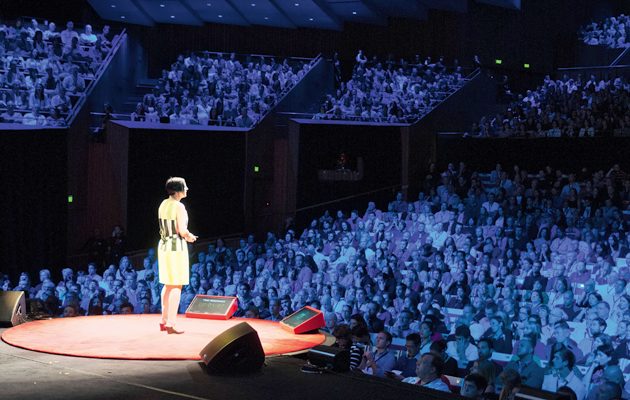|
(image: Tim Lumsdaine) |
||
|
The talks series aimed at “spreading ideas” has sanitised the process of learning by covering it with a veneer of corporate marketing This article was first published in Icon’s February 2014 issue. Buy old issues or subscribe to the magazine for more like this I know it’s not a crime against just design, but TED talks have deeply damaged any presentation, talk, lecture or video clip. Their grating tone, the needy desire to be funny and slick and new and revelatory and … The problem with TED Talks is their introduction of that peculiarly American cocktail of creepily white-toothed marketing, New Yorker article, TV evangelism and generic, self-promoting business speak. TED talks are PowerPoint presentations made 3D, delivered in a tone – that enthusiastic, world-saving, revelatory irrefutability – that has suddenly become the default language of everything everywhere, from the international conference to the business meeting. Good, you might think. No more interminable talks by tweedy old bores. Here is a medium of delivery of ideas fit for the 21st century. And it is. Fit for a moment in which the attention span has dwindled to something able to absorb only a single idea. The bite-sized format is predicated on the one-liner, the justification of a statement and they leave no room for complexity. The rooms in which they are delivered are full of people who think they’re part of an elite; they are in the presence of these great thinkers, people like them, people able to deliver a single idea clearly in a quarter of an hour with no equivocation. As education begins to veer towards remote learning, as it inevitably will, the TED Talk will become (or is becoming) the standard format for the delivery of information and we will have lost the kind of lecture that moves from one unexpected point to another via a series of digressions, which may well be the lasting impression you are left with. The best kind of knowledge does not allow itself to be encapsulated in a web talk; instead, it touches on many points in a complex web. The TED Talk is designed to deliver a finite dose and not to provoke beyond the 15 minutes of fame it confers on its speakers. It is a statement and not a stimulant. |
Words Edwin Heathcote |
|
|
||


















